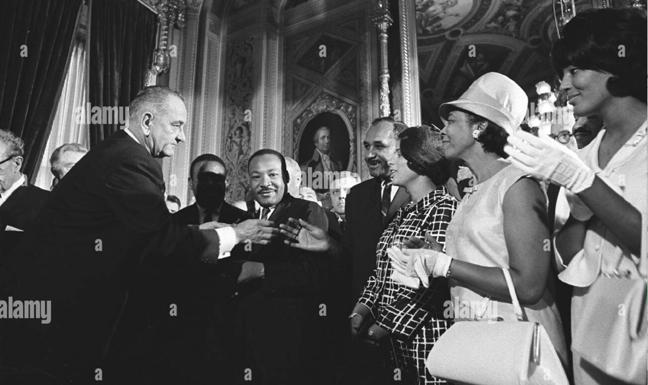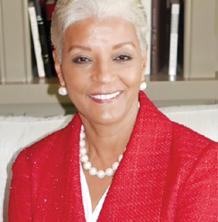
2 minute read
GPB EXTRA
from GPB Next - June 2023
by gpbdigital
Margie Tuckson Interview
The year 1963 was full of pivotal events in the Civil Rights Movement and tragic news that gripped the nation, including Martin Luther King Jr.’s penning of Letter from Birmingham Jail in April, the Children’s Crusade in May in which students in Birmingham, Alabama marched for racial equality and President John F. Kennedy’s June address to the nation on the struggle to affirm civil rights for all Americans.
The night of the President’s address on June 11, 1963, a young woman, Vivian Malone Jones, sat watching from her dorm room at the University of Alabama. Earlier that day, she arrived on campus accompanied by the U.S. Attorney General and federal marshals as one of the first two Black students to enroll in the University of Alabama. As she tried to enter Foster Auditorium to register for classes, Governor George Wallace, in an attempt to preserve his promise of “segregation now, segregation tomorrow, segregation forever,” stood at the door to block her entry. In response, President Kennedy federalized the Alabama National Guard, and Wallace was ordered to step aside.
With the sixtieth anniversary of the event approaching this month, Margie Tuckson who is Vivian’s younger sister, as well as successful businesswoman and supporter of GPB, recalls the impact of Vivian’s experience for her family and the broader scope of what was happening during that time period.

“The part that I remember 60 years ago is we would watch the news – CBS and Walter Cronkite,” said Tuckson. “Every day there was something going on that put fear in your heart. With every one of these things, you wonder if this was going to happen to her.”
Tuckson reveals that during the time when her sister was enrolled, the family would get threats and had police protection, just as Vivian did.
“I’m working on a way to put my version together of how this felt as a young kid,” said Tuckson. “I’m still in the process of trying to figure out if I should write a story, a letter or an opinion editorial on what this felt like and honor the challenge and her willingness to put herself out there.”
In 1965, Vivian would become the first Black student to graduate from the University of Alabama, and she earned a bachelor’s degree in business.
“When she graduated, we were there for her graduation,” said Tuckson. “I have a picture of us in the Bear Bryant stadium, which was a riser stadium like the old high school auditoriums. There were police and bomb dogs all up underneath there.”
After she completed her degree in business, no one offered Vivian a job. Eventually, she took a position with Robert Kennedy in the Justice department working on civil rights initiatives. She later became executive director of the Voter Education Project and then worked with the Environmental Protection Agency until her retirement in 1996. Vivian passed away in 2005.
“She’s a role model,” said Tuckson. “I emulated her. When I step back from it, I know I channeled so much of who she was.”
Reflecting on further events of 1963, including the March on Washington in August and Martin Luther King’s “I Have a Dream” speech that took place there, Tuckson adds “This is such an important timeline in America’s history as we position this with where we are today. It’s an eerie feeling to know that we’re 60 years out and there are things happening with the voter suppression issue. History - America is being rolled back.”
Part of the need is that people have access to information and opportunities to gain greater understanding, and this is why Tuckson believes in supporting GPB.
“I can’t explain to you how important it is to know the news, know the programming, know the level of what you all bring to the station,” she said. “It fills a void that is nowhere on regular television.”








